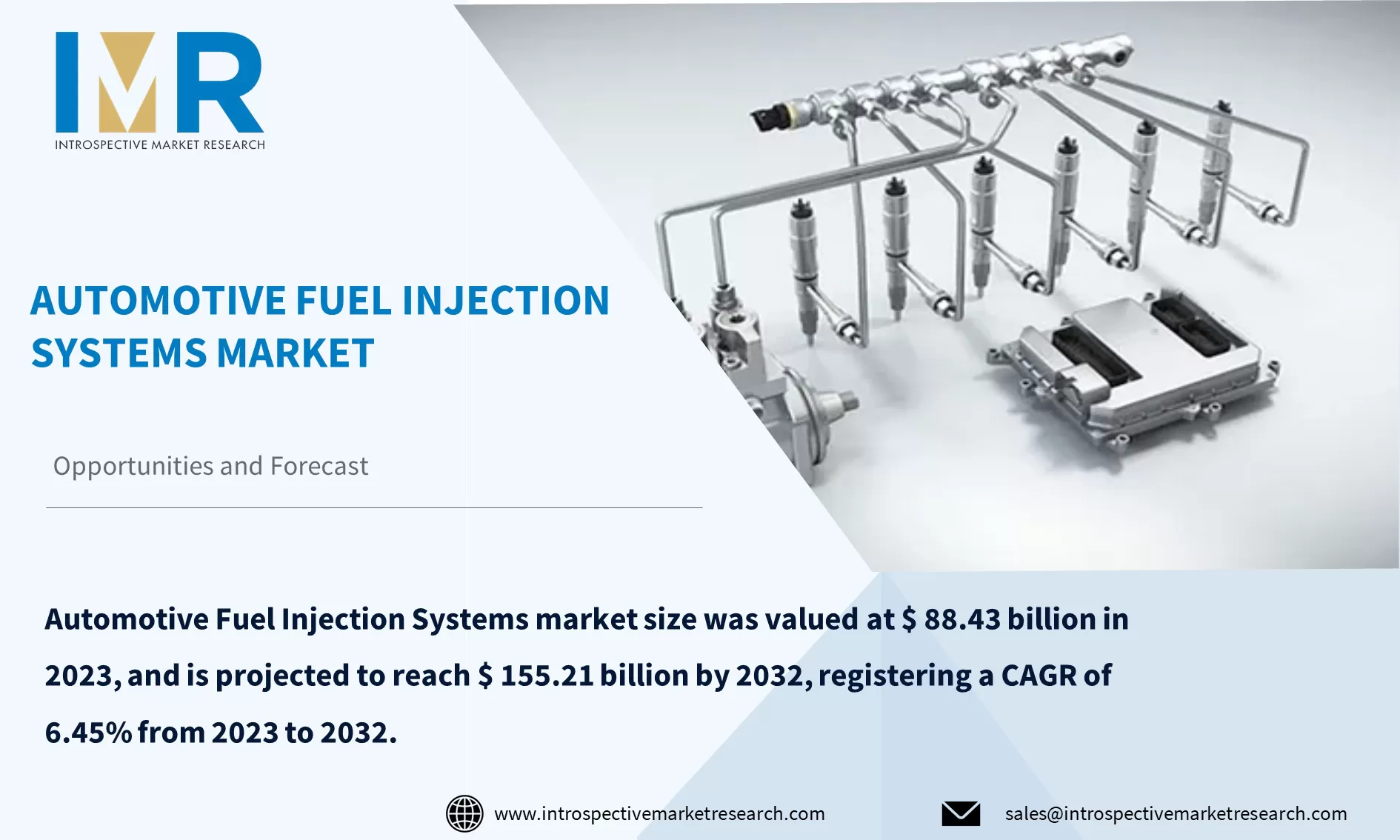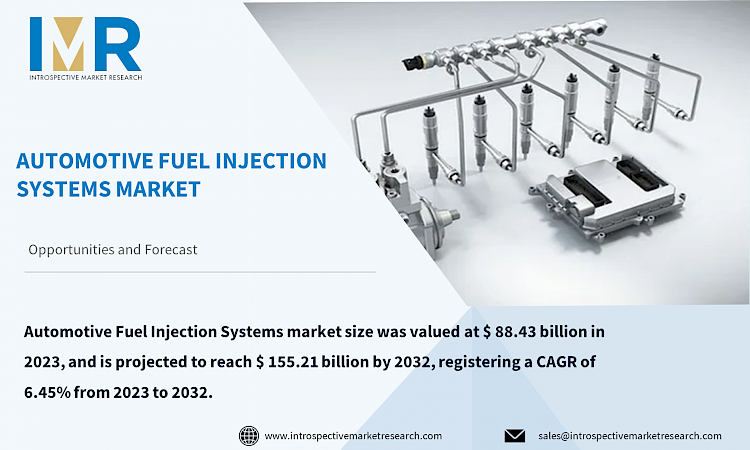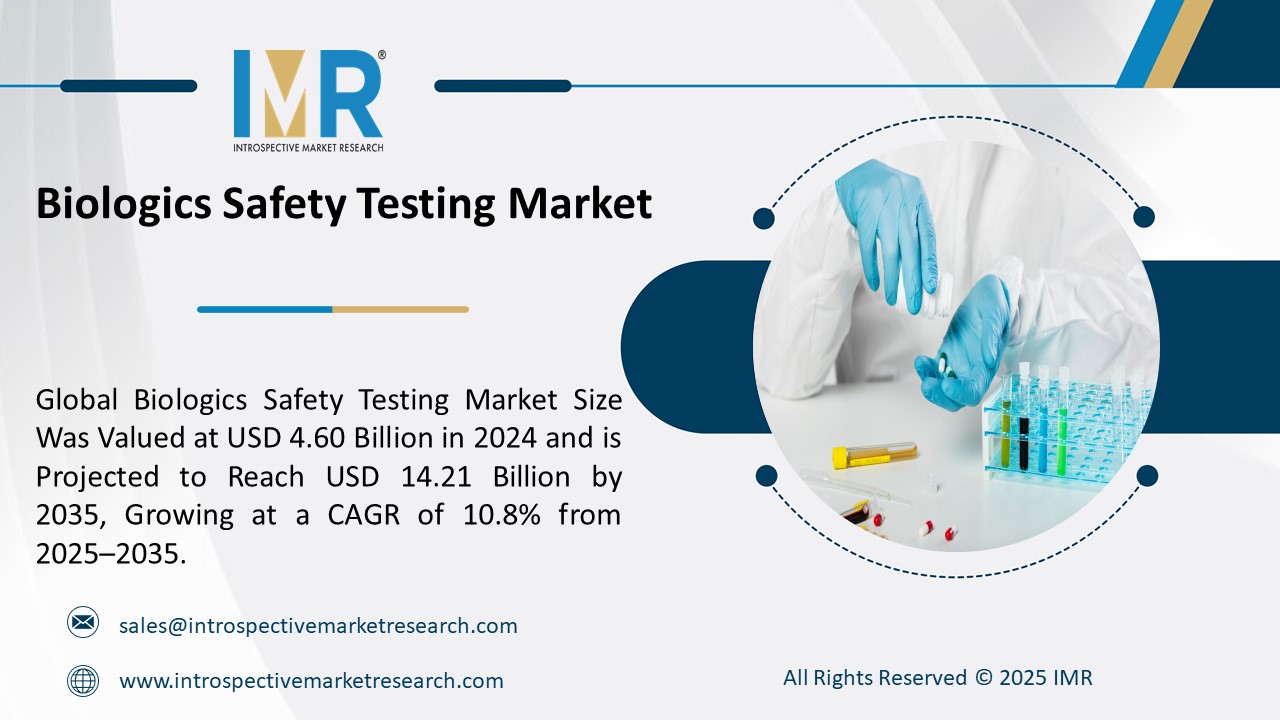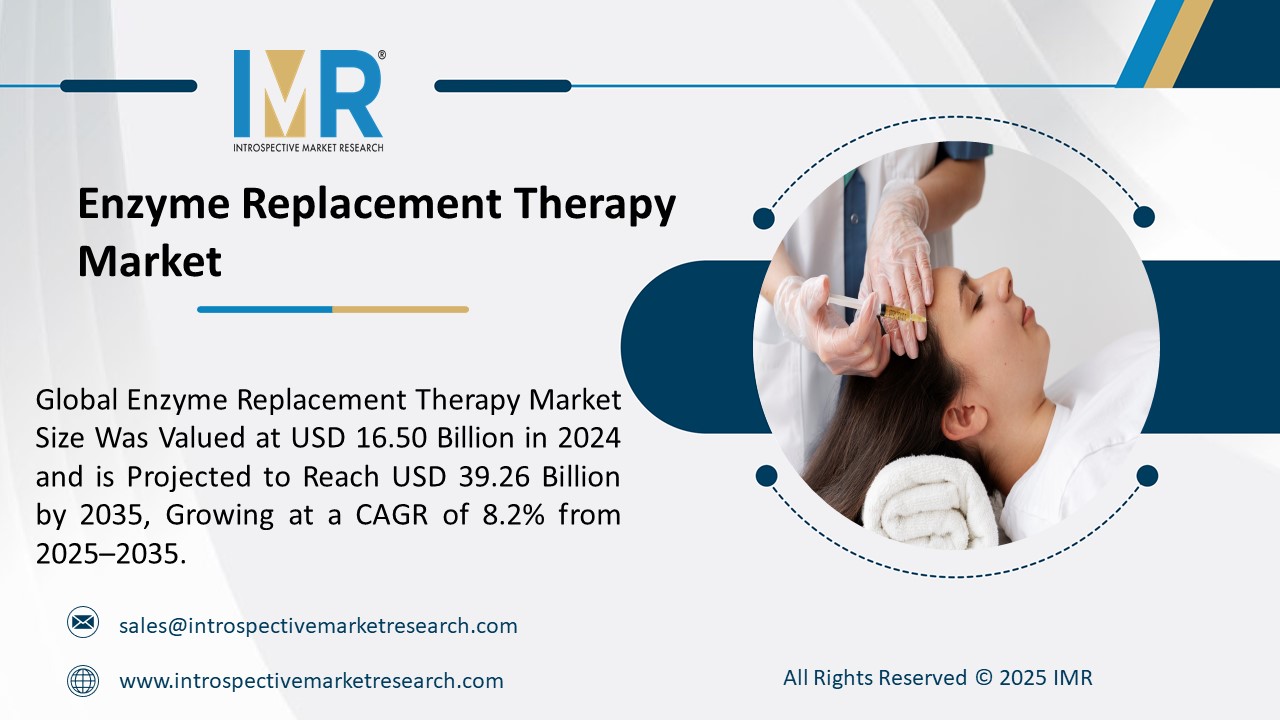Automotive Fuel Injection Systems Market
According to a new report published by Introspective Market Research, titled, ?Automotive Fuel Injection Systems Market by Fuel Type, Injection System, Components, Vehicle Type, Technology, and Distribution Channel: Global Opportunity Analysis and Industry Forecast, 2024?2032,?
the global Automotive Fuel Injection Systems market size was valued at $ 88.43 billion in 2023, and is projected to reach $ 155.21 billion by 2032, registering a CAGR of 6.45% from 2023 to 2032.
Automotive Fuel Injection Systems are pivotal components within internal combustion engines, meticulously regulating fuel distribution to engine cylinders. These systems are instrumental in enhancing vehicle performance and fuel efficiency by optimizing combustion efficiency. Comprising fuel injectors, a fuel pump, a pressure regulator, and an Electronic Control Unit (ECU), they meticulously manage the injection process. Fuel injection can occur directly into the combustion chamber or the intake port, catering to both gasoline and diesel engines. Their role is dynamic, ensuring precise fuel delivery, reduced emissions, and compliance with stringent environmental standards.
The Automotive Fuel Injection Systems market is witnessing substantial growth owing to its manifold benefits. These systems improve engine efficiency by controlling the fuel-air mixture, thereby optimizing combustion and enhancing vehicle performance. This results in reduced emissions, addressing environmental concerns. Compared to traditional carburetors, fuel injection systems offer better throttle response, smoother engine operation, and heightened reliability. The market is evolving with advanced fuel injection technologies such as Gasoline Direct Injection (GDI) and Common Rail Diesel Injection (CRDI), which enhance fuel atomization and combustion, consequently boosting power and fuel efficiency in gasoline engines. Manufacturers are propelled by the demand for fuel-efficient and eco-friendly vehicles, alongside the increasing integration of electronic components and sensors.
The Automotive Fuel Injection Systems market is poised for growth due to the expanding automotive industry. Rising awareness of environmental sustainability and stringent emission regulations are compelling automakers to invest in advanced fuel injection technologies. This, in turn, fuels sustained demand and technological advancements. Key trends driving the market include stringent emission standards, which necessitate cleaner fuel combustion, and the increasing demand for fuel efficiency and performance. Advanced fuel injection systems not only meet these demands but also offer opportunities for innovation and development, positioning the market for further expansion.
Global Automotive Fuel Injection Systems Market, Segmentation
The Automotive Fuel Injection Systems market is segmented based on Fuel Type, Injection System, Components, Vehicle Type, Technology, Distribution Channel, and region.
Fuel Type:
Gasoline engines, favored in smaller vehicles, continue to be consumers' top choice for perceived efficiency and performance benefits. Tightening emission regulations drive automakers to adopt advanced gasoline fuel injection technologies like Gasoline Direct Injection (GDI) to meet standards. GDI's enhanced combustion efficiency and fuel economy bolster gasoline engines' appeal. Industry emphasis on cleaner, more fuel-efficient gasoline vehicles sustains the segment's dominance in the Automotive Fuel Injection Systems market amid a shift towards eco-friendly solutions. Gasoline remains the leading segment amidst evolving automotive trends.
Technology:
Gasoline Port Injection (GPI) is known for its reliability, cost-effectiveness, and simplicity, making it a preferred choice for various gasoline-powered vehicles. The established manufacturing infrastructure and familiarity among automakers contribute to its sustained dominance. Advanced technologies like Gasoline Direct Injection (GDI) offer certain advantages, GPI strikes a balance between performance and affordability, making it a pragmatic choice for a diverse range of applications. As the automotive landscape evolves, GPI is expected to remain a cornerstone technology, meeting the demands for efficiency, reliability, and cost-effectiveness in fuel injection systems.
Region:
Gasoline Port Injection (GPI) is renowned for its reliability, affordability, and simplicity, making it a favored option across various gasoline-powered vehicles. Its entrenched manufacturing infrastructure and widespread adoption by automakers contribute to its sustained prevalence. While advanced technologies like Gasoline Direct Injection (GDI) offer distinct advantages, GPI strikes a balance between performance and cost-effectiveness, appealing to a diverse array of applications. The projected predominance of GPI underscores industry acknowledgment of its proven track record and the pragmatic considerations of manufacturers and consumers alike. As the automotive landscape progresses, GPI is poised to remain a fundamental technology, addressing demands for efficiency, dependability, and affordability in fuel injection systems.
Some of The Leading/Active Market Players Are-
- Carter Fuel Systems, Llc (US)
- Edekbrock, Llc (US)
- Federal-Mogul Corporation (US)
- Kinsler Fuel Injection (US)
- Ucal Fuel Systems Ltd. (Canada)
- Aptiv Plc (Ireland)
- Bosch, Robert (Germany)
- Continental Ag (Germany)
- Magneti Marelli (Italy), and Other Active Players
Key Industry Developments
- In December 2023, Stanadyne, a prominent global provider of fuel and air management systems, introduced an innovative enhancement kit for high-pressure port fuel injection (HPFI). This kit is designed to elevate fuel delivery pressures by up to 100 bar specifically for high-performance and racing gasoline engines. The unveiling of this ground-breaking aftermarket port injection technology took place at the 2023 PRI Show in Indianapolis.
- In September 2023, Continental and Google Cloud joined forces in a strategic partnership aimed at revolutionizing the automotive industry. The collaboration merges Continental's automotive prowess with Google's data and AI technologies to pioneer innovative in-vehicle experiences and advance automotive-grade software.
Key Findings of the Study
- The global Automotive Fuel Injection Systems market is projected to grow from $88.43 billion in 2023 to $155.21 billion by 2032, registering a CAGR of 6.45%, primarily driven by the demand for fuel-efficient and eco-friendly vehicles.
- Gasoline engines remain dominant in the market, fueled by tightening emission regulations and advancements in technologies like Gasoline Direct Injection (GDI), emphasizing cleaner combustion and improved fuel economy.
- Gasoline Port Injection (GPI) maintains its stronghold due to its reliability, affordability, and simplicity, making it a preferred choice for various gasoline-powered vehicles amidst evolving automotive trends.






